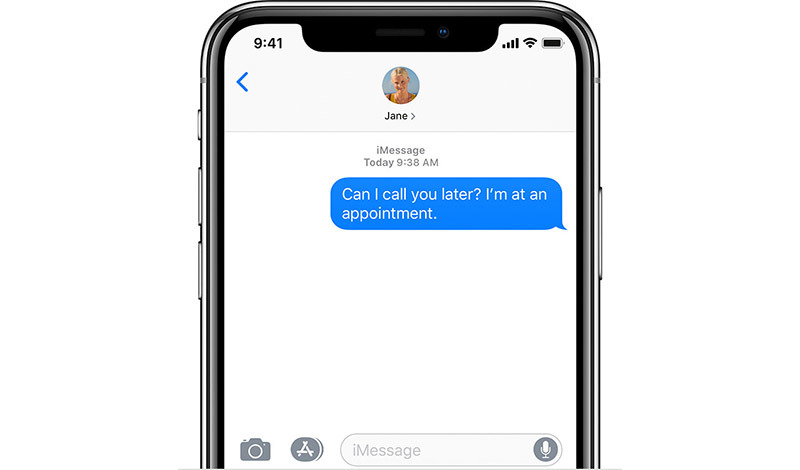A lawsuit filed in federal court on Thursday alleges certain aspects of Apple products, including iMessage and FaceTime, infringe on multiple patents owned by Finnish holdings firm MPH Technologies, which attempted to license its IP to Apple in 2016.
Filed with the U.S. District Court for the Northern District of California, the MPH suit asserts eight patents relating to secure messaging solutions, targeting existing Apple software and services.
Specifically, Apple infringes on IP related to sending and forwarding messages over a secure connection, according to the document. Named in the action are iMessage, FaceTime and Apple's always-on VPN feature, the latter being a mobile device management (MDM) solution marketed to corporations and educational institutions.
Across eight patents, MPH details methods of initiating secure communications through a variety of technologies, including VPN and end-to-end encryption. Apple, according to MPH, has applied the protected tech in devices running macOS, iOS and watchOS without authorization.
MPH first informed Apple of what it believed to be patent infringement in a series of emails sent on July 1, 2016, communication that led to a call with an unnamed Apple patent acquisitions executive. A follow-up letter in October of that year detailed the applicability of MPH's patents and introduced Apple to a pending patent that was later granted.
Apple referred the issue to its in-house patent counsel, who in November received additional information regarding the alleged infringed patents. Three months later, after reviewing MPH's documents, Apple sent a letter containing conclusory statements, saying it did not "believe a license is required, as the asserted patents are not infringed and/or invalid as MPH appears to be interpreting the claims."
MPH and Apple representatives discussed the matter further, going so far as to hold multiple teleconference sessions in May 2017 regarding a potential licensing agreement. During one of those calls, Apple counsel intimated the company was preparing an analysis of MPH's patents demonstrating the IP was invalid based on prior art. That analysis was never delivered.
Direct communications between the two companies seemingly ended in July 2017, with MPH sending notification of two patent grants and Apple acknowledging the message with a brief reply indicating a future response was soon to follow.
That same month, patent risk management entity RPX, of which Apple was an early member, reached out to MPH to discuss the issue. MPH believes the move was "on behalf of and for the benefit of Apple," but fails to provide evidence of the tech giant's involvement.
A number of Apple-branded products are accused in the suit. Marquee messaging platforms iMessage and FaceTime are alleged to be in infringement as implemented in iOS 8, iOS 9, iOS 10, iOS 11, iOS 12, OS X Yosemite, OS X El Capitan, macOS Sierra, macOS High Sierra, macOS Mojave, WatchOS 2, WatchOS 3, WatchOS 4 and WatchOS 5. Also at issue is Apple's adoption of so-called "MOBIKE" technology related to always-on VPN services.
Patents-in-suit were developed by Finnish company Intrasecure Networks, later known as Netseal, which received research and development funding from venture capital firms, mutual fund companies and Finnish governmental agencies to create mobile communication security solutions. The IP changed hands to Netseal Mobility Technologies before making its way to MPH.
MPH seeks undetermined compensation for infringement and a permanent injunction prohibiting further use of the eight patents.
 Mikey Campbell
Mikey Campbell







-m.jpg)






 Chip Loder
Chip Loder
 Wesley Hilliard
Wesley Hilliard
 Marko Zivkovic
Marko Zivkovic

 Christine McKee
Christine McKee
 Amber Neely
Amber Neely

 Malcolm Owen
Malcolm Owen








6 Comments
At least this lawsuit appears legit. Whether it has merit or not is a question for the lawyers.
Edit: Legit as in it appears that MPH is an actual company, rather than a shell entity for profiteering.
Let the courts sort it out.
It’s funny how many patents the same
VPN functionality is supposed to infringe upon.
Given how much VPN tech is free software and even standardized internet technology, it begs the question if courts have anywhere near enough know-how to assess which are obvious (and thus not patent-worthy) derivatives of public tech.
There are too many patents granted for stuff that’s utterly obvious.
.
Wrong. VPN is not standardized. In fact, clients may not be compatable. Looks like you do not have enough experience with working with it. There are mainstream VPN implementations and proprietary. I worked with both. Do not judge entiore world after your Apple devices. It is a little too narrow experience. Also VPN is not neccessarily free. Also it is not about software, but about technology implementation that may be patented.Some proprietary VPN software may not be free. In fact some companies used to sell teir clientts implementation ONLY if you purchased their network equipment.
Lest anyone think these kinds of lawsuits are exclusively Apple, think again. Every single company in existence gets sued all the time, we just don’t hear about it because it’s business as usual in the grand scheme fo things. When it’s Apple though, the tech blogs like AI plaster it all over the Internet. That’s just the way it is.
Apple is certainly no angel, that’s for sure, and has done its share of shady stuff, but convincing yourself that Apple is the only one who gets sued for stuff like this is just stupid. Apple tends to fight this stuff instead of settling out of court unless it has to. Most other companies, like Google for example, keep this stuff out of the headlines because they settle whether they’re guilty or not.
Finally there’s the tried and true deep pockets method of suing. Sue everybody even remotely associated with the issue in the hope that the shotgun approach will yield some big bucks from somebody.